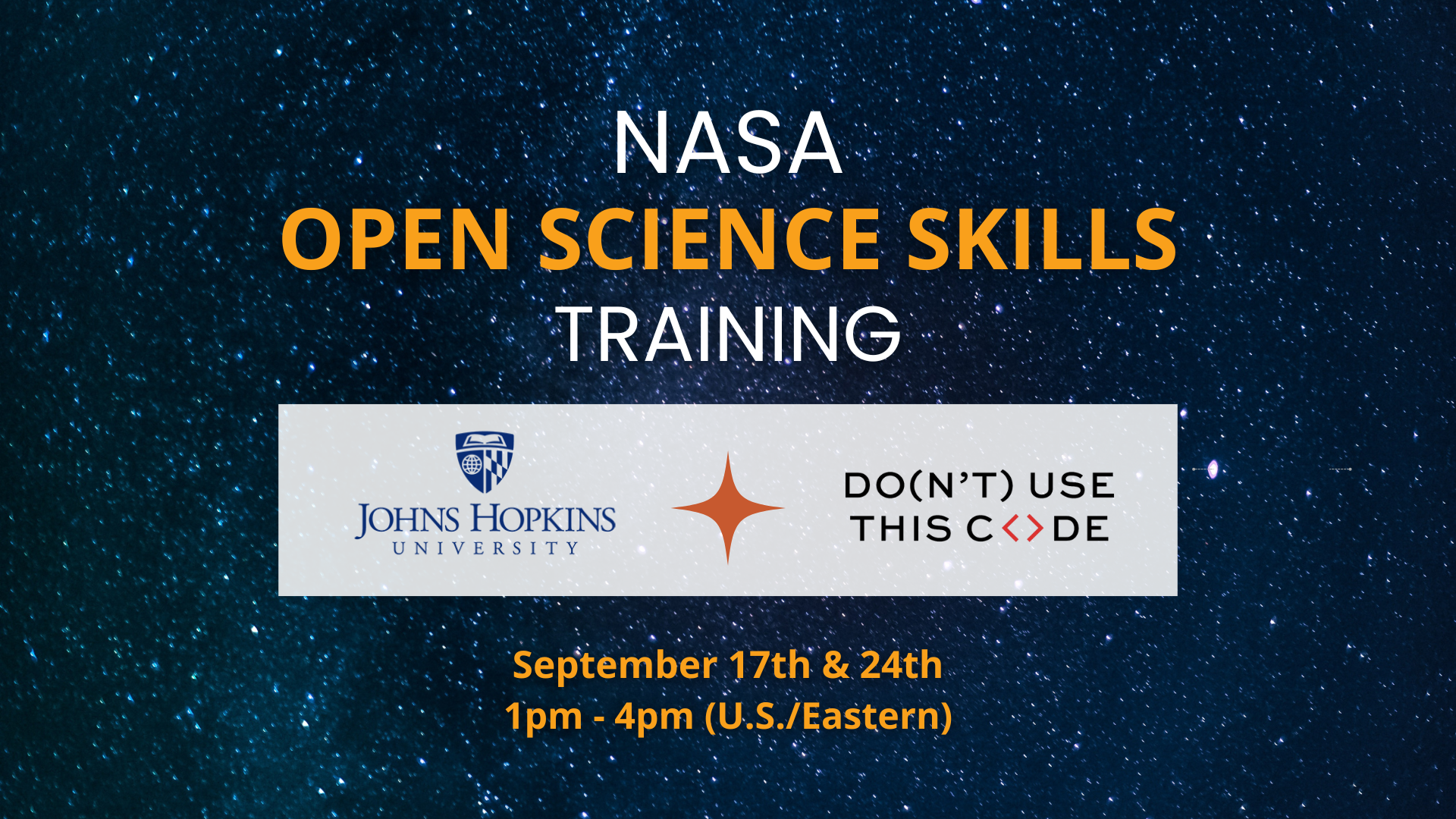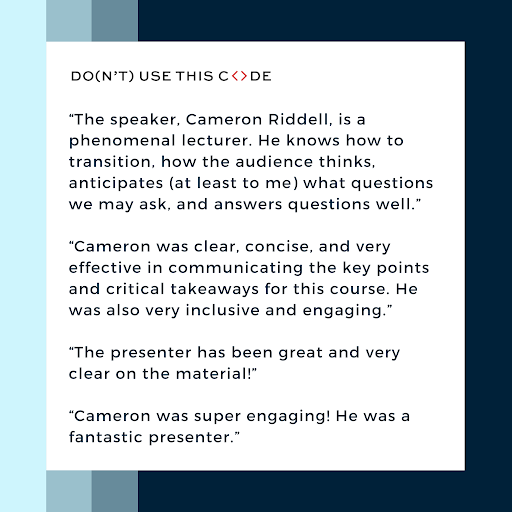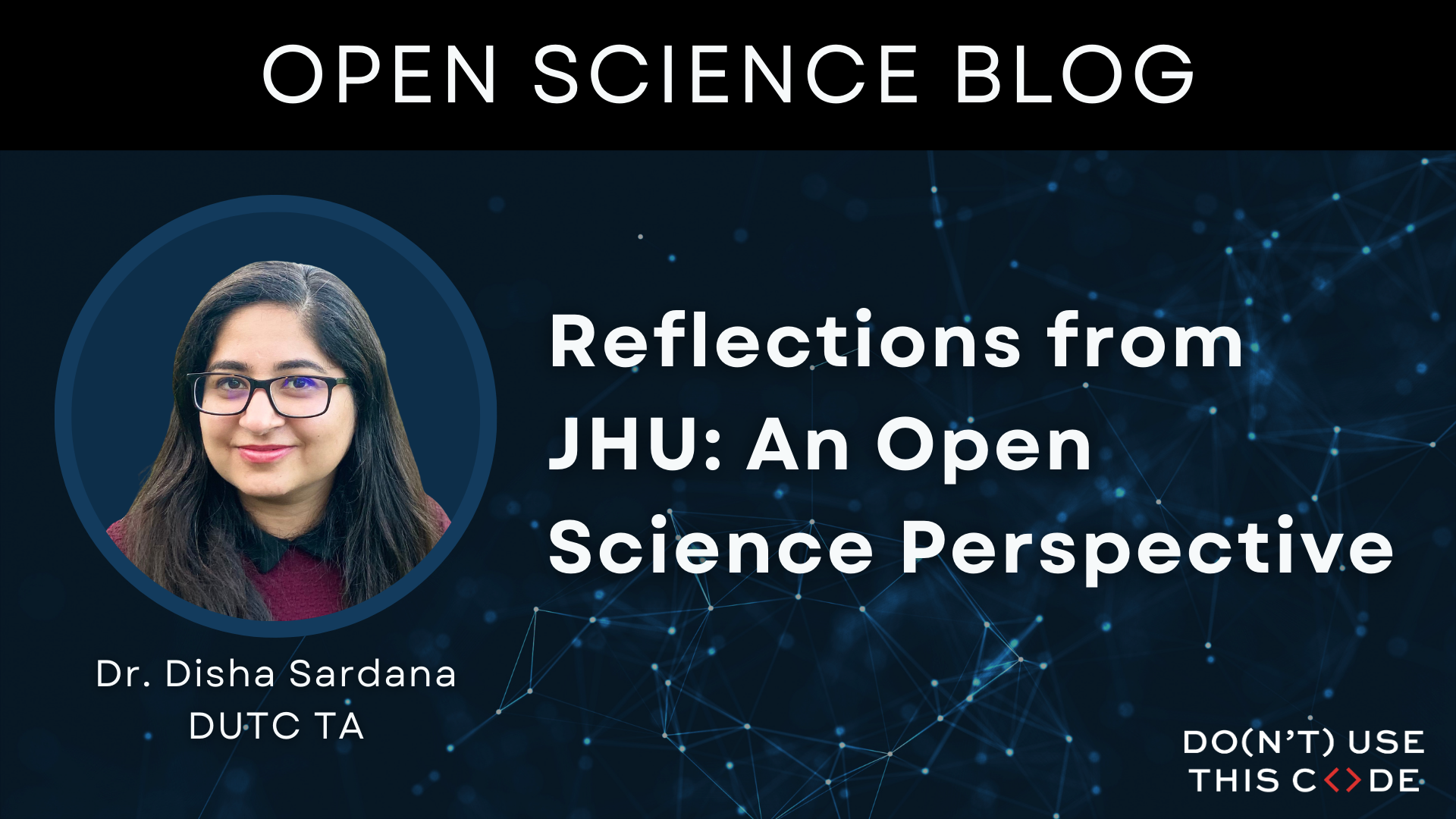Reflections from Johns Hopkins University: An Open Science Perspective
Recently, our team at DUTC hosted our NASA Open Science Virtual Training session with Johns Hopkins University. The event was a huge success, bringing in over a hundred registrants! Before the training began, we wanted to get to know attendees better, so we provided a pre-survey to understand their background and familiarity with open science principles. In total, 68% of survey participants pursued the training on their own, and 32% took the online course along with co-workers and/or colleagues. Well over half of them had or were pursuing graduate degrees, bringing valuable knowledge and experience from their respective fields to the training. Their disciplines spanned a wide variety of fields; we had attendees in economics, biomedical engineering, electrical engineering, biological science, environmental health science, analytical chemistry, biodesign, psychology, neuroscience, applied mathematics, library and information science, and financial engineering.
Equally diverse were their reasons for taking the training, from self-interest to providing service to researchers and contributing to open infrastructure. Participants wanted to improve their research skills and learn how to use technologies and tools relevant to doing research. Some wanted to specifically learn about open science skills such as open publishing and data management, how to be efficient with data sharing, understanding publication standards for data sharing, and how to use open-source collaborative tools. They wanted to learn how to publish their data and use new tools like Python and GitHub. Some people were motivated to attend the session in order to apply the open science principles to community-based participatory research projects. Some simply wanted to show off their digital NASA open science badge! ;)

After learning about the participants' motivations, our lead instructor, Cameron Riddell, designed the curriculum for a diverse audience with a broad range of skills and prior experience, adapting to the attendees' interests and backgrounds. The entire Open Science team’s main goal was to ensure that the audience got the most from the training sessions. The pre-survey showed that most participants were unfamiliar with open science principles such as FAIR and CARE and visualization approaches such as putting the “Bottom Line Up Front” (B.L.U.F.). Over half of the attendees had never used version control in their projects, and most had never contributed data sets to an open data portal. This data showed a gap in prior knowledge of the popular open science tools and approaches among the attendees.
To meet attendees’ needs, Cameron and the team focused on conveying the practices and methods of open science in a way everyone could understand. Cameron incorporated their questions into the discussion, crafting the curriculum to meet their needs. To earn their badges, attendees were expected to participate in discussions, polls, and/or chat. Throughout the session, I saw them share a flood of incredible insights with their fellow learners, improving the quality of the curriculum as a whole. It was incredible to be a part of the experience!
After the training, we asked participants to fill out a post-session feedback survey. Here’s a peek into what attendees thought of it:
Nearly two-thirds of the participants gave an excellent rating, while the final third rated it as “good” and “very good.” When asked what they enjoyed most about the training, they mentioned being excited about the instructor's and the team’s enthusiasm. Many gave a special shout-out to Cameron:

“The speaker, Cameron Riddell, is a phenomenal lecturer. He knows how to transition, how the audience thinks, anticipates (at least to me) what questions we may ask, and answers questions well.”
“Cameron was clear, concise, and very effective in communicating the key points and critical takeaways for this course. He was also very inclusive and engaging.”
“The presenter has been great and very clear on the material!”
“Cameron was super engaging! He was a fantastic presenter.”
From the survey, we also found that the participants appreciated the thoughtfulness of the content. The simple explanations, real-world examples, and applicability to multiple fields helped the participants enjoy this course. From an open science perspective, attendees appreciated the framing of open science as a cultural issue that requires a culture change.
Many participants also mentioned how they loved learning about different visualization approaches. Cameron takes care to include best practices and methods to communicate findings and understand the differences between a good data visualization and a bad one. Attendees appreciated learning the impact of data visualization and presentations on the information/message they want to make sure to convey. They felt that the topics taught were invaluable, and they enjoyed learning about open science (ethos, benefits) and how to implement these principles practically in their work. Learning about the reproducibility of research and visualization techniques, learning ways to communicate their data more clearly, and understanding open science helped them gain practical skills and tools they can use for their work with publishing papers and preparing presentations.
Attendees also noted their appreciation for the TA’s effort and enthusiasm and found our supplementary content and information very helpful. I was glad to help them learn about open science and issues in scientific research, and how to move forward while keeping open science fundamentals in mind.
And, to summarize their final takeaway, they also learned…
“…it is okay to share your code - even if it isn't great!”According to organizers at Johns Hopkins, open science is a great way to build the foundation of what is best practice in research. It is a must for young trainees to get all the basics down to pioneer/contribute towards open science. To them, everyone in the research community should be aware of open science. Currently, people find it frustrating—though not uncommon—to run into issues with colleagues who don't see the value in open science. With our open science training session, folks at JHU gained practical knowledge, and they hope more people can learn about open science and how it benefits us all.
Do you want private Open Science training for your company or institution? Reach out to openscience@dutc.io to learn more. To attend one of our free training sessions, register now at https://www.opensciencetraining.org